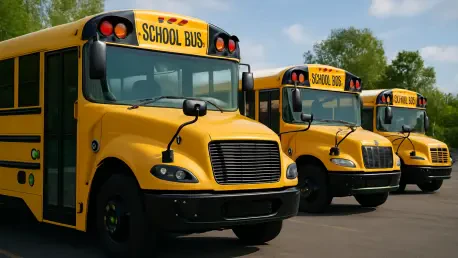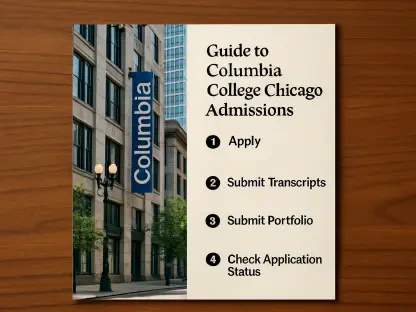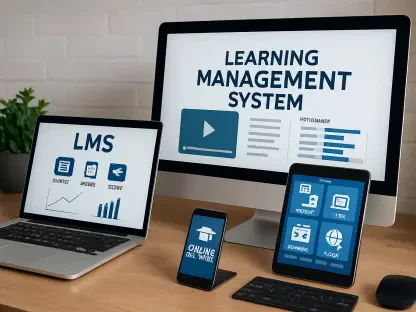In a groundbreaking move toward sustainable transportation, a northern Illinois school district has become a beacon of innovation with the help of a major utility provider. West Aurora School District 129, located in the Chicago metropolitan area, is leading the charge by transitioning a significant portion of its bus fleet to electric vehicles (EVs), thanks to substantial financial support from ComEd, a unit of Chicago-based Exelon Corporation. This initiative not only marks a pivotal step in reducing carbon emissions but also showcases how collaborative efforts between utilities, school districts, and federal programs can drive environmental progress. With nearly $1 million in rebates awarded to the district, ComEd is playing a crucial role in electrifying school transportation, setting a powerful example for others to follow. This development sparks curiosity about the mechanics behind such a transition and the broader implications for clean energy adoption across the region.
A Milestone in School Transportation Electrification
West Aurora School District 129 has emerged as a trailblazer in the realm of electric school buses, deploying an impressive fleet of 27 all-electric Blue Bird buses alongside 28 EV chargers. This achievement, supported by a rebate of $930,000 from ComEd—split into $450,000 for vehicle costs and $480,000 for charging infrastructure—has positioned the district as the largest operator of electric school buses in the Chicago area and among the most significant within ComEd’s service territory, which spans over 4.3 million customers. The funding has been instrumental in overcoming the high upfront costs associated with EV adoption, making the switch from diesel to electric both feasible and impactful. Beyond ComEd’s contribution, the district also secured nearly $5 million through the U.S. Environmental Protection Agency’s Clean School Bus Program, with federal support playing a vital role. This synergy of utility rebates and federal grants underscores the importance of multi-tiered partnerships in achieving large-scale sustainability goals in public transportation.
The operational impact of this transition at West Aurora is equally noteworthy, as the electric buses are strategically used on shorter routes to accommodate battery limitations, particularly during the cold winter months when performance can be affected. Despite these challenges, the initiative is projected to generate approximately 735 GWh of renewable energy each year, significantly cutting down on greenhouse gas emissions. Additionally, the buses offer a quieter and smoother ride, enhancing the experience for students and drivers alike. Financially, the district reaps substantial benefits, with each electric bus costing roughly half as much to operate compared to its diesel counterpart. These savings, combined with the environmental advantages, highlight the dual economic and ecological incentives driving this shift, positioning West Aurora as a model for other districts considering similar moves toward electrification.
Broader Impacts of ComEd’s Electrification Program
ComEd’s commitment to electrification extends far beyond a single school district, reflecting a comprehensive strategy to transform transportation across its service area. Since the launch of its beneficial electrification program in early 2024, the utility has invested over $100 million in transport electrification rebates, facilitating the installation of more than 7,200 EV charging ports and supporting over 2,200 fleet vehicles. A striking 80% of these rebates are directed toward low-income communities, emphasizing a dedication to equitable access to clean energy solutions. This focus on inclusivity ensures that the benefits of electrification—such as reduced air pollution and lower operating costs—are shared across diverse socioeconomic groups. Furthermore, ComEd is pioneering grid integration technologies, including a vehicle-to-grid pilot program with three Illinois school districts, to explore how bus battery energy can bolster grid stability and reduce costs during peak demand periods.
The utility’s leadership, as articulated by CEO Gil Quiniones, positions rebates as a critical tool for alleviating the financial burden of transitioning to electric fleets while aligning with state energy and climate objectives. This initiative at West Aurora serves as a blueprint for scalability, demonstrating how targeted investments can catalyze widespread adoption of sustainable transportation. The ripple effects are evident in the growing interest from other districts and municipalities within ComEd’s territory, signaling regional momentum toward cleaner alternatives. By addressing both the practical challenges, like weather-related constraints, and the broader systemic barriers through innovative funding and technology, ComEd is helping to redefine the future of public transportation. These efforts reflect a consensus on the urgency of reducing carbon footprints and the tangible benefits that come with embracing electric solutions on a large scale.
Paving the Way for a Sustainable Legacy
Reflecting on the strides made by ComEd and West Aurora School District 129, it’s clear that their partnership marks a turning point in the journey toward sustainable school transportation. The nearly $1 million investment, coupled with federal backing, enabled the deployment of a pioneering electric bus fleet that reshaped local commuting norms. This collaboration not only slashed emissions but also delivered quieter rides and significant operational savings, proving that environmental goals and economic gains can go hand in hand. Looking ahead, the focus should shift to replicating this success through expanded rebate programs, enhanced grid technologies, and tailored strategies for diverse climates and communities. By building on these foundations, stakeholders can accelerate the transition to electric fleets, ensuring that the legacy of cleaner, greener transportation endures for generations to come.









